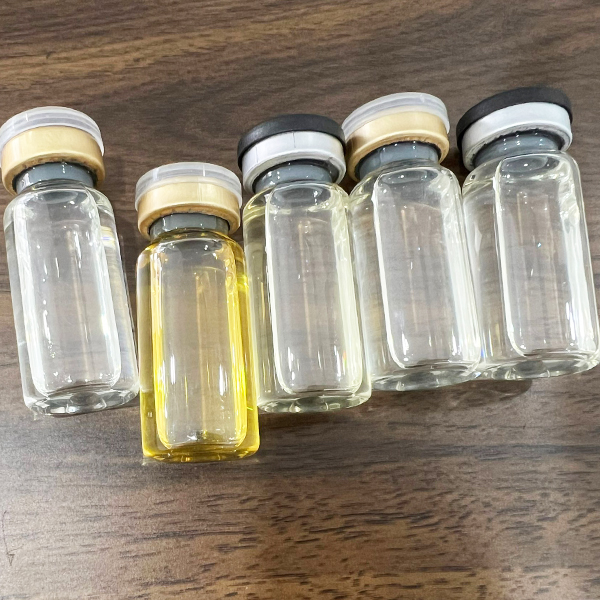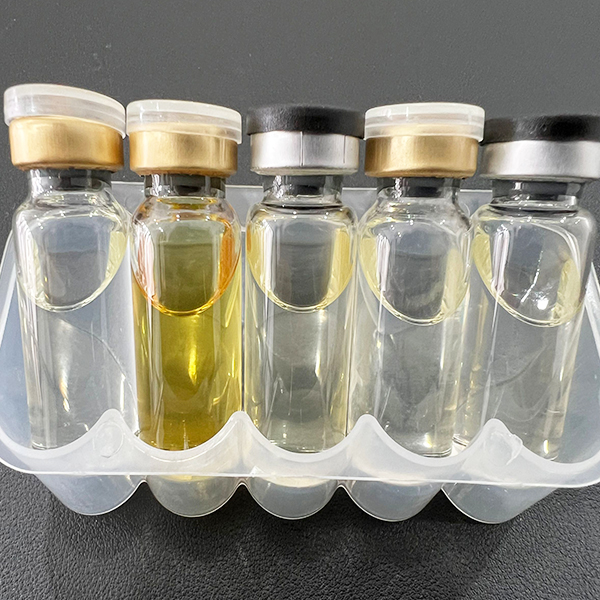Tianeptine is a unique antidepressant that is primarily used for the treatment of major depressive disorder (MDD), anxiety, and stress. It is a selective serotonin reuptake enhancer (SSRE), in contrast to typical antidepressants like SSRIs (Selective Serotonin Reuptake Inhibitors), which inhibit serotonin reuptake. Tianeptine is known for its neuroprotective, mood-enhancing, and anxiolytic (anxiety-reducing) properties. While it is not widely prescribed in the United States, Tianeptine is available in other countries, such as parts of Europe and Asia, as a prescription medication.
Tianeptine's mechanism of action is distinct from other antidepressants, which has contributed to its growing popularity in the realm of nootropics and cognitive enhancers.
How Tianeptine Works
Unlike typical antidepressants, Tianeptine does not work by inhibiting the reuptake of serotonin. Instead, it enhances the reuptake of serotonin, which leads to increased serotonin activity in the synaptic cleft. However, this mechanism is not entirely understood, and its full action in the brain is still under research. Here are the main ways Tianeptine works:
Selective Serotonin Reuptake Enhancement (SSRE):
Tianeptine enhances the reuptake of serotonin, which increases serotonin levels in the brain, helping to regulate mood and reduce anxiety.
This is the opposite of typical SSRIs, which inhibit serotonin reuptake, leading to higher serotonin levels.
Neuroplasticity and Neuroprotection:
Tianeptine has been shown to promote neuroplasticity (the brain’s ability to form new neural connections) and has neuroprotective effects. It helps protect neurons from stress-related damage and enhances synaptic connections, which contributes to improved cognitive function and emotional regulation.
Modulation of Glutamate Receptors:
Tianeptine has been found to affect glutamate receptors (NMDA and AMPA receptors), which are involved in learning and memory. By modulating these receptors, Tianeptine may improve cognitive function and support the brain’s response to stress.
Anti-Inflammatory Effects:
Research suggests that Tianeptine has anti-inflammatory properties, which could help reduce the chronic inflammation often associated with depression and anxiety. This could contribute to its mood-enhancing effects.
Dopamine Regulation:
Tianeptine is also believed to influence dopamine levels in the brain, which may contribute to its mood-elevating and motivation-enhancing effects.
Benefits of Tianeptine
Mood Enhancement and Antidepressant Effect:
Tianeptine is most well-known for its ability to reduce depression symptoms. It has a mood-elevating effect, improving feelings of well-being, and it is particularly effective for those who do not respond well to traditional antidepressants.
Anxiolytic (Anti-Anxiety) Effects:
Tianeptine helps reduce anxiety symptoms, making it useful for individuals dealing with generalized anxiety disorder (GAD) or other anxiety-related conditions.
Cognitive Enhancement:
Tianeptine may have mild nootropic effects, enhancing cognitive function, memory, and learning ability due to its influence on glutamate receptors and neuroplasticity.
Stress Reduction and Adaptogen-Like Properties:
Tianeptine works to reduce stress and help the body adapt to stressful situations, making it an effective supplement for those dealing with chronic stress or high-pressure environments.
Neuroprotection:
It may protect the brain from damage caused by chronic stress, oxidative stress, and neuroinflammation, contributing to long-term brain health.
Improved Sleep Quality:
Tianeptine is known to help improve sleep quality, especially in people with depression or anxiety, as it promotes relaxation and helps regulate the sleep-wake cycle.
Dosage Guidelines for Tianeptine
Tianeptine is typically taken orally in capsule or tablet form, and the appropriate dosage depends on the individual’s needs and the condition being treated. Below are the general guidelines for dosage:
Typical Dosage:
The standard dosage for treating depression is usually 12.5 mg, taken three times a day (a total of 37.5 mg/day). This is the dose commonly prescribed for those with major depressive disorder (MDD).
For Anxiety:
For anxiety or stress, a typical dose ranges from 12.5 mg to 25 mg, taken once or twice a day.
For Cognitive Enhancement:
Some people use Tianeptine for its cognitive-enhancing effects. A lower dose of 12.5 mg once or twice a day may be effective for this purpose.
Starting Dose:
If you're new to Tianeptine, it's best to start with the lowest effective dose (12.5 mg per day) and increase gradually if needed.
Duration of Use:
Tianeptine is often taken for a period of weeks to months for antidepressant and anxiolytic effects. However, it is important to follow your healthcare provider's recommendations to avoid dependence and to prevent tolerance.
Onset of Effects:
The effects of Tianeptine can be felt within 1–2 hours of ingestion, with full therapeutic effects becoming noticeable after a few weeks of consistent use.
Stacking Tianeptine
Tianeptine can be stacked with a variety of nootropics, adaptogens, and other supplements to enhance its benefits or mitigate potential side effects.
With L-Theanine:
Combining Tianeptine with L-Theanine can provide a calming, mood-enhancing effect while promoting focus and relaxation. This stack is popular for reducing stress and increasing cognitive performance.
With Rhodiola Rosea:
Rhodiola Rosea is an adaptogen that can help the body cope with stress and fatigue. When stacked with Tianeptine, it may improve the body’s response to stress while enhancing mood and cognitive function.
With Bacopa Monnieri:
Bacopa Monnieri is a well-known cognitive enhancer that could complement the memory-boosting effects of Tianeptine. It may also help reduce anxiety and support long-term brain health.
With Ashwagandha:
Ashwagandha, another powerful adaptogen, can be stacked with Tianeptine to reduce anxiety, combat stress, and improve mood. This combination helps enhance both physical and mental well-being.
With Omega-3 Fatty Acids:
Omega-3 fatty acids (found in fish oil or algae oil) can support brain health and cognitive function. Combining them with Tianeptine may enhance its neuroprotective effects.
Side Effects of Tianeptine
Tianeptine is generally well-tolerated when used as directed, but like any medication or supplement, it can cause side effects, particularly if taken in excess or for extended periods.
Gastrointestinal Issues:Some users report mild gastrointestinal discomfort, such as nausea, constipation, or stomach pain, especially when starting the medication.
Drowsiness or Sedation:At higher doses, Tianeptine can cause mild sedation or drowsiness. If taken late in the day, it may interfere with alertness and focus.
Headaches:A mild headache may occur, especially in individuals who are sensitive to changes in serotonin or neurotransmitter levels.
Dizziness:Some users may experience dizziness or lightheadedness, particularly when standing up quickly after taking Tianeptine.
Tolerance and Dependence:
While Tianeptine is not as addictive as other medications (like benzodiazepines or opioids), tolerance and dependence can develop with prolonged or excessive use. Withdrawal symptoms such as anxiety, irritability, and fatigue can occur if the drug is abruptly discontinued.
Potential Drug Interactions:Tianeptine may interact with other central nervous system depressants (e.g., alcohol, benzodiazepines, other sedatives), potentially increasing the sedative effects. It should be used cautiously if taking other medications, particularly for mood disorders or anxiety.
Overdose Risk:While rare, overdose can occur with excessive use of Tianeptine, leading to serious side effects such as respiratory depression, coma, or severe sedation. Always adhere to recommended dosages.
Safety and Precautions
Pregnancy and Breastfeeding:
Tianeptine is generally not recommended during pregnancy or breastfeeding due to limited data on its safety in these populations. Consult a healthcare provider if pregnant or breastfeeding.
People with Liver or Kidney Issues:
Tianeptine may need to be used cautiously or at a reduced dose in individuals with liver or kidney problems. Always consult a healthcare provider if you have any pre-existing conditions.
Consult a Healthcare Provider:
If you are considering taking Tianeptine for depression, anxiety, or cognitive enhancement, it is essential to speak with a healthcare provider to ensure that it is an appropriate and safe option for you.
Conclusion
Tianeptine is a promising antidepressant and anxiolytic that works through a unique mechanism of action, enhancing serotonin reuptake and promoting neuroplasticity. It offers a range of benefits, including mood enhancement, stress reduction, cognitive improvement, and anxiety relief, making it a valuable tool for those struggling with depression, anxiety, or chronic stress.
Though generally well-tolerated, Tianeptine should be used with caution due to the potential for tolerance, dependence, and withdrawal symptoms. It is important to follow recommended dosages, avoid prolonged use, and consult a healthcare provider if you have any concerns or medical conditions.
For individuals who use Tianeptine responsibly, it can offer significant benefits in terms of mental well-being, cognitive performance, and overall emotional health.





